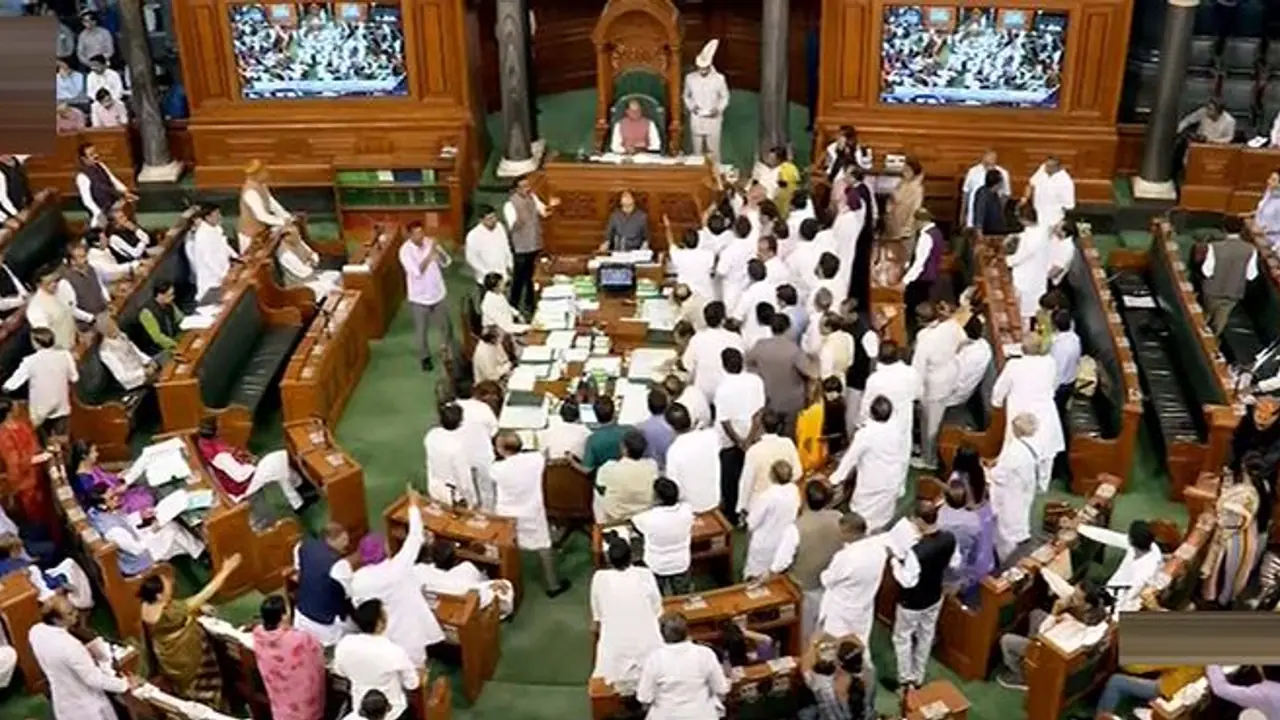Certain leaders from various Opposition parties supporting the no-confidence motion appear to have readied a face-saving statement, suggesting that their primary intention was to compel the Prime Minister to address the Parliament and respond to the concerns they raised.
The no-confidence motion moved by the Opposition against the Narendra Modi government is destined to fall flat, not just because the former lacks the numbers required to defeat the ruling dispensation but also because the Opposition too believes so. In fact, some leaders of some Opposition parties backing the no-trust motion seem to have already prepared a face-saver statement that the intention was to compel the Prime Minister to come to Parliament and respond to the issues raised by them.

AAP MP Raghav Chaddha emphasized the historical significance of critical instruments of debate, dialogue, and discussion within India's Parliament. He stated that 'regardless of the outcome, these instruments serve the essential purpose of facilitating extensive discussions on important issues and compelling the Prime Minister of India to address concerns raised by the people and Members of the Lok Sabha'.
Rashtriya Janata Dal MP Manoj Jha acknowledged that though they may not have the majority, democracy 'goes beyond mere numbers'. He highlighted the urgency of the situation in Manipur and the public's eagerness for the Prime Minister to address the matter. Jha suggested that the 'No Confidence Motion could serve as a means to prompt the Prime Minister to speak, which would be a significant achievement'.
CPI MP Binoy Viswam described the No Confidence Motion as a 'strategic political move' with a clear purpose of producing results. He stressed the 'importance of forcing the Prime Minister to address the Parliament through this motion'. Binoy Viswam expressed the need for a comprehensive discussion on the country's issues, particularly focusing on Manipur, regardless of the numerical strength, as both sides were well aware of the numbers.
Advantage NDA in Lok Sabha
A look at how the numbers stack up in Lok Sabha shows the swing in the Narendra Modi government's favour. At plain sight, there are at least 331 votes in favour of the National Democratic Alliance while the Opposition (combining I.N.D.I.A and other Opposition parties) stands at just 212 seats.
What is a No-Confidence Motion?
A no-confidence motion serves as a parliamentary tool employed by the opposition to express their lack of confidence in the government.
According to the rules of the Lok Sabha, a no-confidence motion can only be introduced after the Speaker has given permission for it, as specified in rules 198(1) and 198(5) of the Lok Sabha. The party or group intending to bring the motion must provide a written notice to the Secretary-General by 10 am. Additionally, the motion requires the support of a minimum of 50 members of the House.
If the no-confidence motion garners enough support and gets passed, the President of India schedules one or more days for in-depth discussions on the matter. The President also has the authority to demand that the government prove its majority. Failure to do so would result in the resignation of the entire cabinet, or the government may face dismissal.
